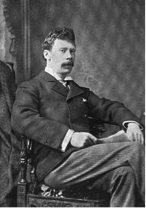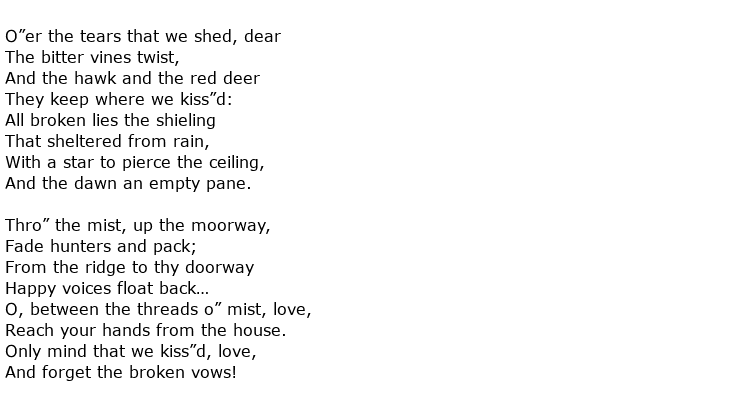 Sir Arthur Quiller-Couch was a famous English poet and novelist whose work sometimes appeared under the simple pseudonym “Q”. His major life’s work was the compilation of a substantial collection of poetry called The Oxford Book Of English Verse 1250–1900 which proved so popular that it was reissued to include poetry up to the year 1918. He influenced and inspired many other writers, all over the world. One of these was the Englishman Kenneth Grahame who claimed that the character “Ratty”, who features in his book The Wind in the Willows, was actually based on Quiller-Couch.
Sir Arthur Quiller-Couch was a famous English poet and novelist whose work sometimes appeared under the simple pseudonym “Q”. His major life’s work was the compilation of a substantial collection of poetry called The Oxford Book Of English Verse 1250–1900 which proved so popular that it was reissued to include poetry up to the year 1918. He influenced and inspired many other writers, all over the world. One of these was the Englishman Kenneth Grahame who claimed that the character “Ratty”, who features in his book The Wind in the Willows, was actually based on Quiller-Couch.
He was born Arthur Thomas Quiller-Couch on the 21st November 1863 in the Cornish town of Bodmin. His name comes from the union of two old families – Quiller and Couch – and Arthur was fortunate that he had writers, naturalists and historians within his immediate family. He thus grew up with a thirst for knowledge and the intellect to use it. Early education was provided at Newton Abbot Proprietary College and he progressed from there to Clifton College, Oxford, and then Trinity College in the same city. He took up a position as a lecturer in the Classics at Trinity following the award of his degree.
While at Oxford he busied himself with writing high-quality verse and a collection called Poems and Ballads was published in 1896. He had a passionate interest in the history of British verse and his anthology mentioned above came out in 1900. It is a reflection of Quiller-Couch’s reputation as a writer that this became the standard reference on the subject for over 70 years. It was superseded by the New Oxford Book of English Verse, produced by Helen Gardner in 1972.
Here is an example of his poetry which is part of a piece of work called Exmoor Verses. This is a fairly mournful extract, sub-titled Dereliction:

After Oxford he had a brief spell as a journalist for the London magazine Speaker but, in 1891, he returned to his roots, settling in the town of Fowey. He lived and worked in the town for the rest of his life, being both writer and political activist for the Liberal Party. For his unstinting work in literature circles he was knighted in 1910 and then received an honour peculiar to the Cornish in 1928. He was created a Bard of Gorseth Kernow, the cultural society created to further the traditions and folklore of “Kernow” (this being the ancient name for Cornwall).
In addition to his verse writing, Quiller-Couch wrote a number of stories celebrating Cornish life, examples being Troy Town, which was based on his own home town of Fowey, and The Rollcall of the Reef, a tale of an early 19th century Cornish shipwreck. He even finished one of Robert Louis Stevenson’s uncompleted stories when, in 1898, he published the novel St Ives.
Throughout his life many honours were bestowed upon him including Professor of English Literature at the University of Cambridge and the award of a Fellowship at Jesus College. He is remembered as one of the first and most eminent of English literature critics and was loved and revered in turn by his students at Cambridge who found him

Sir Arthur Quiller-Couch died on the 12th May 1944, two months after being involved in a collision with a military jeep, the vehicle presumably engaged on D-Day preparations in the south western region of England. He was 80 years old.

